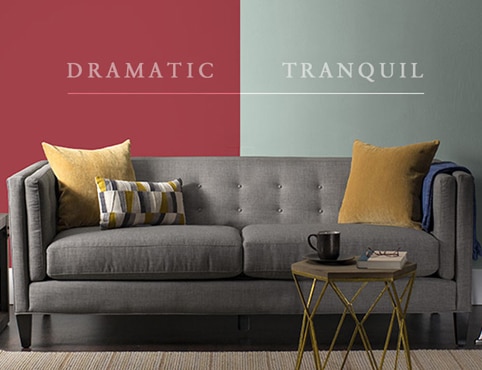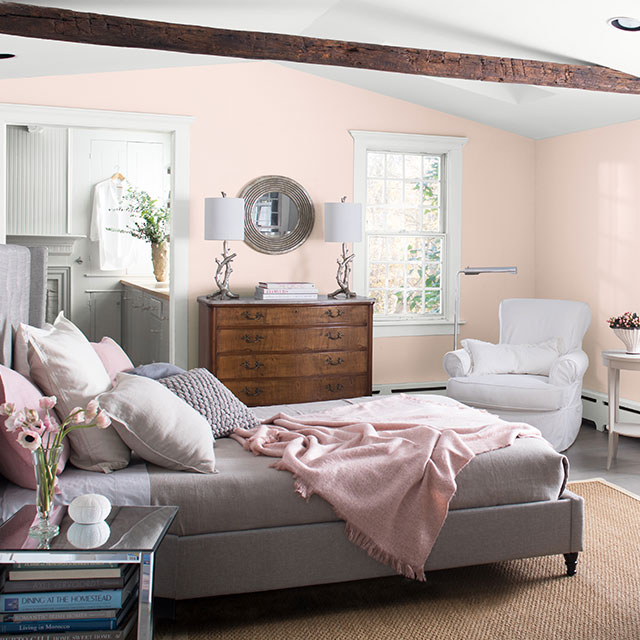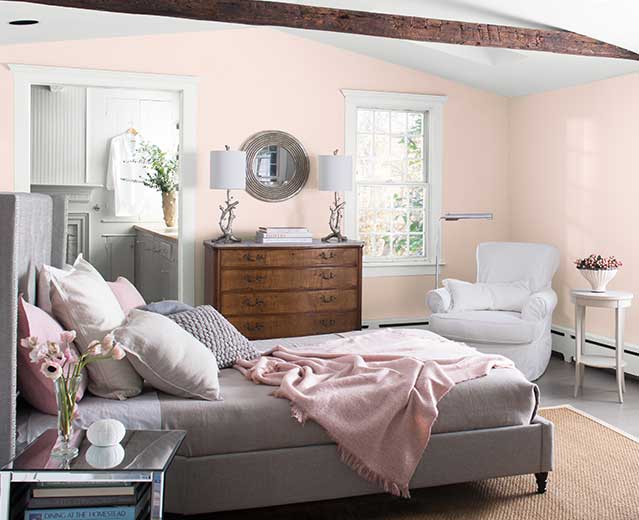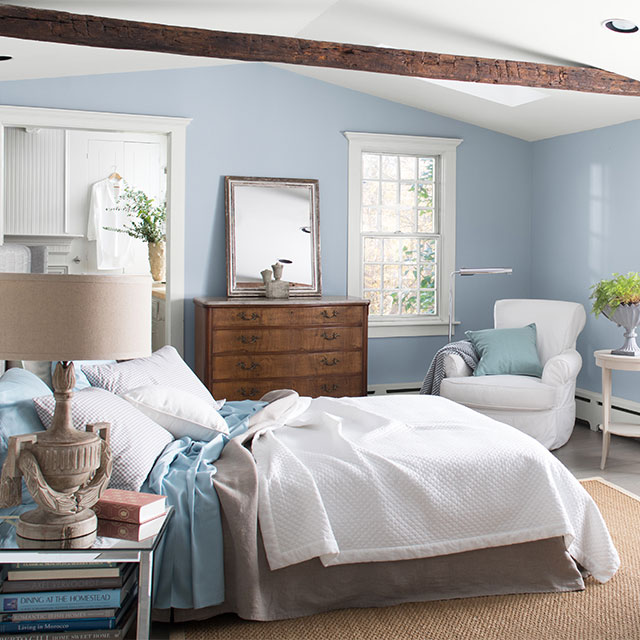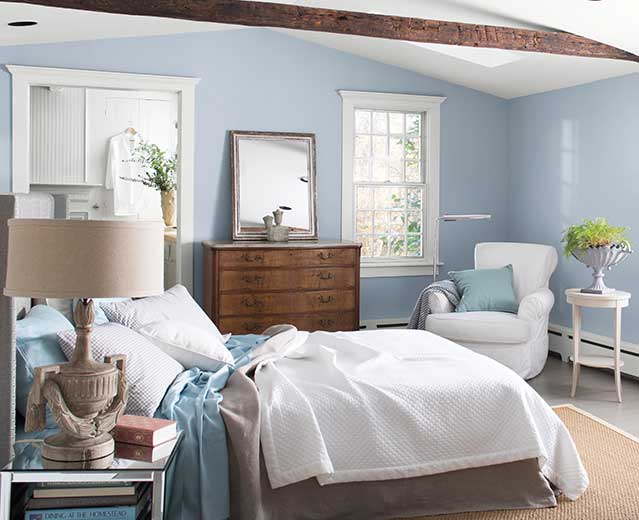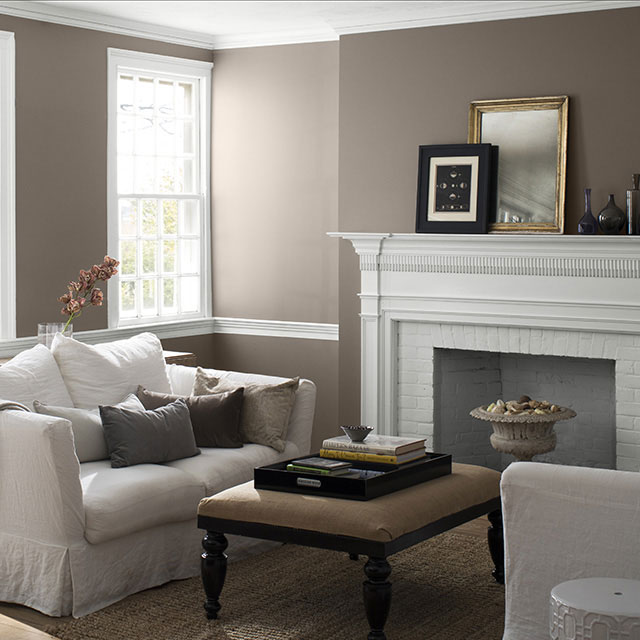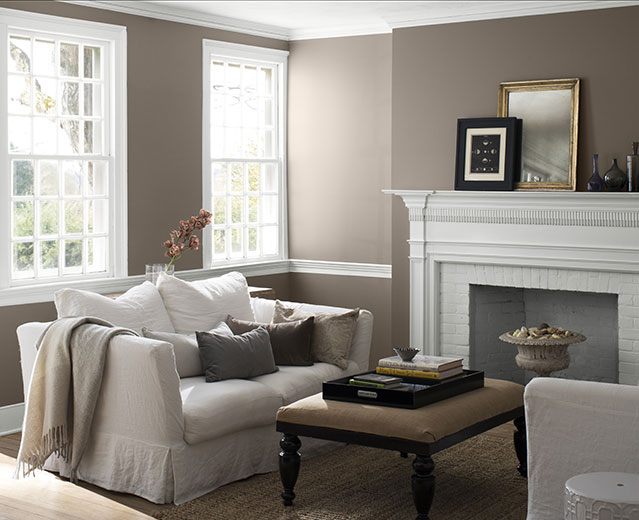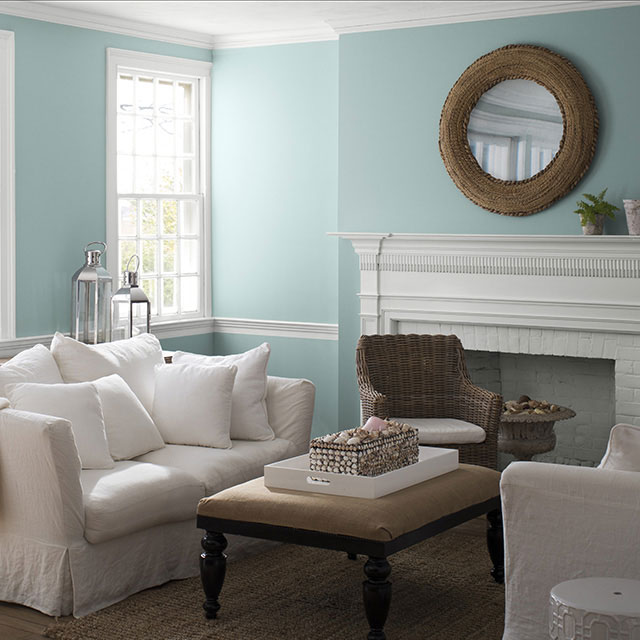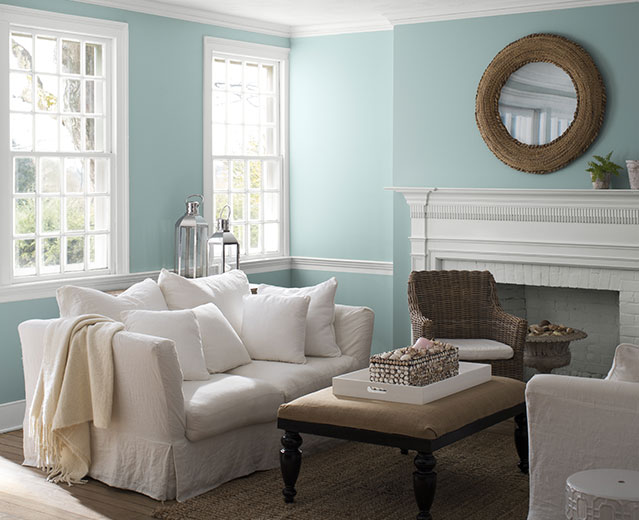Using Warm & Cool Paint Colors
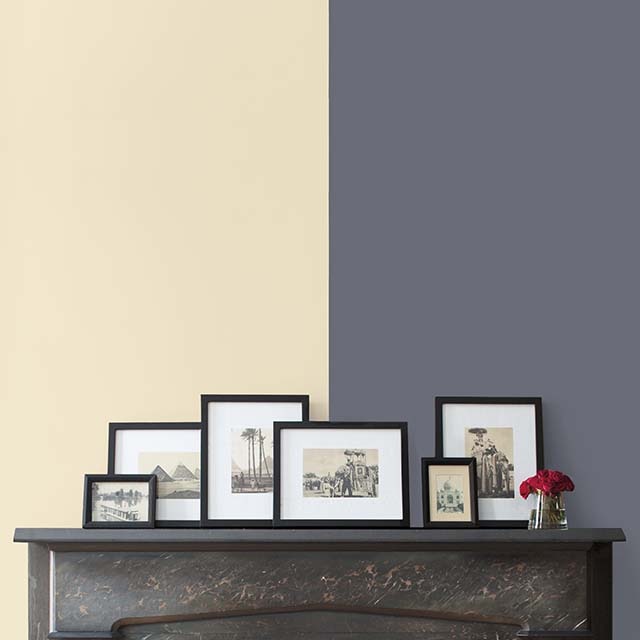
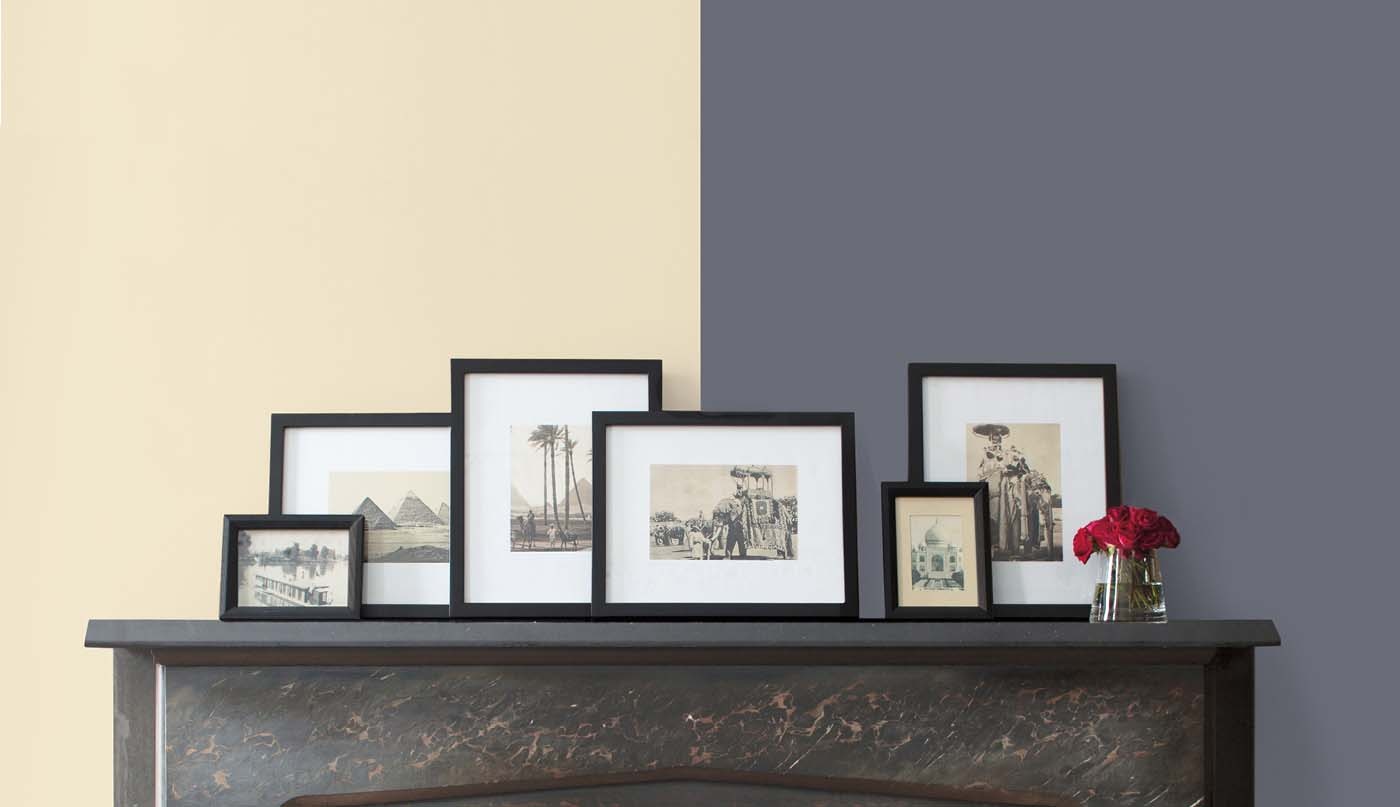
Learn the basics about warm and cool paint colors, see some of our favorites, and learn how your choice of warm or cool color influences your home’s style.
Every color can be categorized as either a warm color, or a cool color. Discover the notes and nuances of both, and use their distinct characteristics to get the look you want.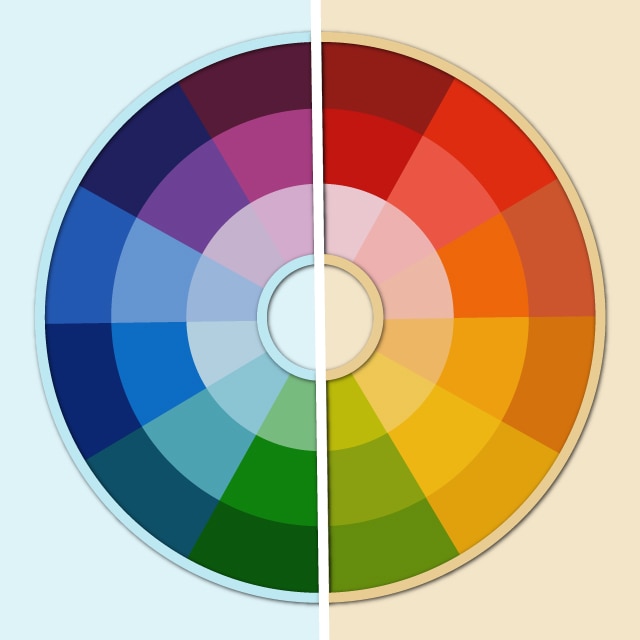
Favorite Warm Interior Paint Colors for Homeowners
Check out these gorgeous examples of warm paint colors we get asked about the most.
Favorite Cool Interior Paint Colors for Homeowners
We recommend these paint colors for homeowners looking for cool interior hues.
Using Warm & Cool Colors In Your Home: A Guide
Warm Colors
- Warm colors are typically used to create cozy and intimate spaces.
- Brighter warm colors are often associated with energy, playfulness and happiness including Million Dollar Red 2003-10, Orange Burst 2015-20, and Sundance 2022-50.
- Warm paint colors are popular in kitchens and living rooms.
- Warmer hues make larger spaces feel more inviting.
Cool Colors
- Cool colors contribute to a sleek, yet soothing vibe.
- Calm, relaxation and freshness are all attributes of cooler shades, including Ocean Air 2123-50, Winter Lake 2129-50, and Evening Dove 2128-30.
- Cool paint colors are popular in bathrooms and bedrooms.
- Cooler hues make smaller spaces feel more expansive.
Combining Warm and Cool Paint Colors?
Many homeowners use both warm and cool colors in the same room. The dominant color—whether it is warm or cool—is the one that influences the room's personality the most.
Many homeowners use both warm and cool colors in the same room. The dominant color—whether it is warm or cool—is the one that influences the room's personality the most.
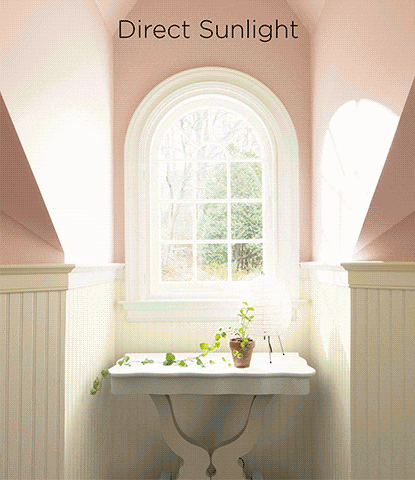
Lighting is Always a Factor
Both natural and artificial lighting can affect how the undertones of a paint color cast, causing them to lean more warm or cool. For rooms that receive a lot of natural lighting, the direction towards which the room faces should be taken into consideration.In rooms that do not receive a lot of natural light, artificial lighting will play a role in how the paint color casts. Be sure to check your lightbulb temperature: Lightbulbs with a temperature over 3500K tend to cast cooler. The lower the temperature, the warmer and cozier the light it emits.
Brushing on a paint sample and observing it in every lighting condition is the best way to ensure a “no surprises” paint color choice.
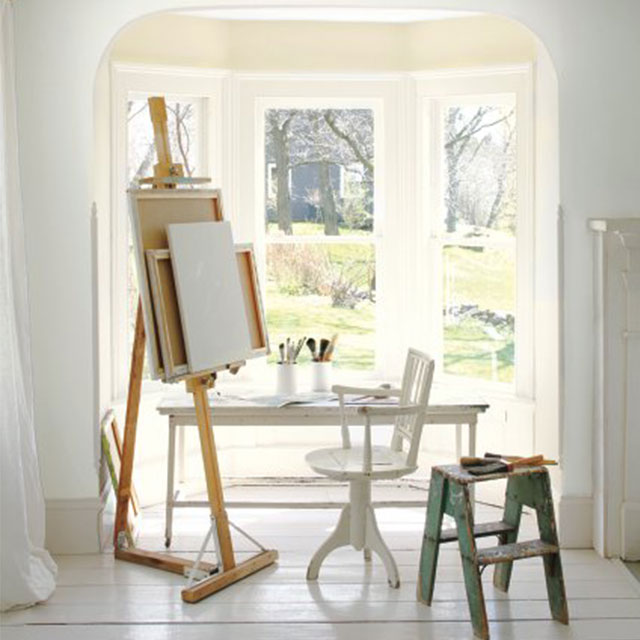
Compare Warm & Cool Neutrals: Find the Undertones
Identifying warm and cool white, gray and neutral paint colors is notoriously challenging. One easy trick when evaluating these hues is to always compare–versus look at any one color in isolation.For example, when you place a white paint color with a yellow undertone next to a white one with a blue undertone, the difference between warm and cool becomes instantly, and strikingly, evident!
Here, the soft back wall is painted in warm Ballet White OC-9, while the front wall ins painted in cool Paper White OC-55.
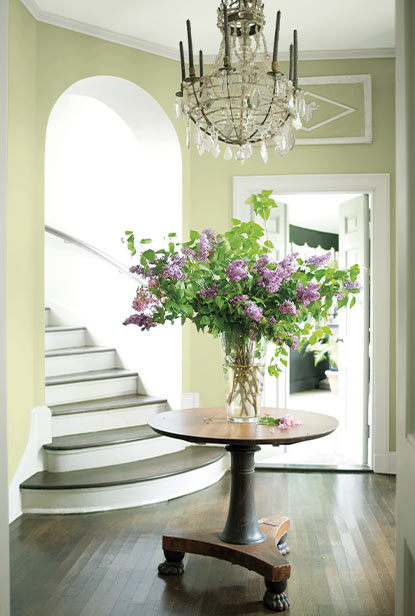
Best White Trim for Warm and Cool Colors
White-painted trim is always classic and dependable. If you choose to paint your walls in a cool color, Decorator’s White OC-149 offers a clean, bright look that pairs beautifully with blues, greens and purples.For warm-painted walls, White Dove OC-17 offers less contrast and a slightly more muted approach to white; it also pairs elegantly with reds, yellows and oranges.
If you have a mix of both warm and cool colors in a room, Chantilly Lace OC-65, is a great white paint choice for trim.
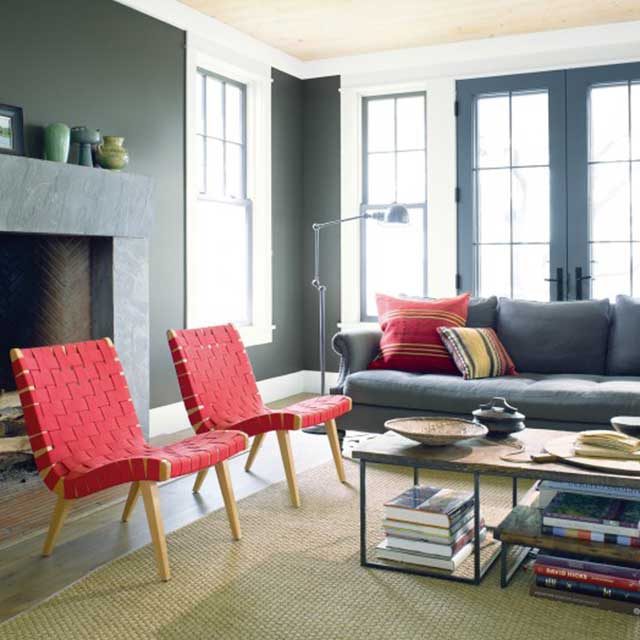
Create a Complementary Color Scheme
Two colors opposite one another on the color wheel are considered complementary colors. In simplest terms, they are red and green, purple and yellow, and blue and orange.The bold contrast found in complementary color schemes differentiates any room. Here, the muted green of Sharkskin 2139-30 on the wall creates design interest when paired with red chairs and a red-striped pillow.
Other complementary color schemes include a deep purple wall in Shadow 2117-30, set off by soft, pale yellow curtain. Or a playful bright wall in Autumn Cover 2170-30, grounded by comfy chairs upholstered in a navy blue fabric.
Ready to play with complementary color schemes? First, discern whether your wall’s paint color is warm or cool. Then use the color wheel on this page to see what its complementary color is…and have fun!
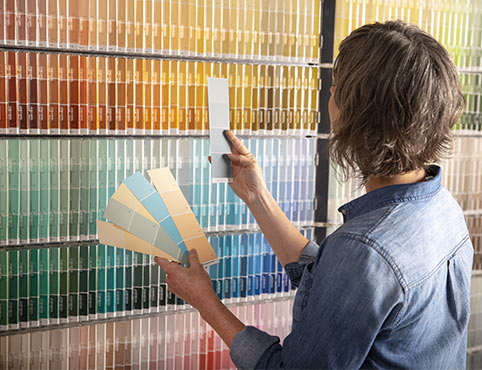
How to Choose Interior Paint Color
Learn from the experts on how to select colors you'll love.
